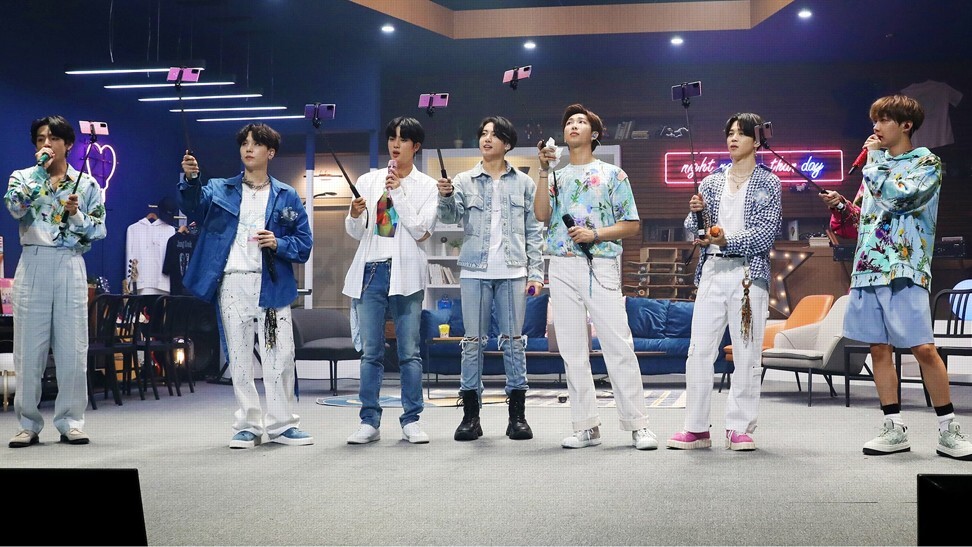
BTS and SuperM online concerts keep K-pop industry ticking over, but smaller acts are struggling
- BTS performed a virtual concert in June that made US$18 million, while SuperM’s online gig in April is estimated to have taken in US$1.9 million
- But virtual gigs are only profitable for K-pop’s major groups – it’s much tougher for smaller bands, with fewer fans, to make money
By Dong Sun-hwa
K-pop record labels have lost one of their most lucrative revenue streams during the coronavirus pandemic – their stars performing in front of massive crowds. In a desperate attempt to survive the crisis, many have turned to online platforms.
Meanwhile, many small and mid-sized companies have failed to find solutions to keep their businesses profitable, according to Yoon Dong-hwan, vice-president of the Record Labels Industry Association (LIAK) and CEO of management company M. Y.music Ent.
“I think the virtual concert is profitable only for about the top 10 K-pop stars that have a solid fan base in Korea and beyond,” Yoon says. “Many other stars who are less popular [especially overseas] tried but failed to stay profitable.”
How BTS and Super M shows earned millions of dollars online
LIAK, established in 2012 by local music labels, is a non-profit trade organisation that aims to protect the interests of its members and promote diversity in the industry, where only a few stars and music styles dominate the spotlight.
“Powerhouses like Big Hit and SM have their own online platforms to live-stream a concert, but smaller K-pop agencies don’t,” Yoon says. “So about 40-50 per cent of their concert profits go to the platform owners that stream and promote the event on their behalf.”
He says the companies also pay for venues, sound, lighting, instruments, outfits and catering services, and so on. It is same as offline shows, just without the crowds. But the ticket price for an online event is cheaper – only about 30,000 won for a ticket that would cost more than 100,000 won at a concert hall.
“It is tough for smaller agencies to generate revenue unless their stars have a very strong fan base who will still pay for events where they cannot see the stars in person,” Yoon says.
In an effort to help struggling entertainment businesses, South Korea’s Ministry of Culture, Sports and Tourism announced on September 1 that it would inject 29 billion won into building a studio and organising online concerts. But industry insiders say the policy is likely to be little help.
“A K-pop band without a strong international fandom can’t attract enough viewers to make virtual concerts profitable,” Yoon says. “One thing the ministry can try is to bring together big stars and less popular ones for joint events. But it needs to think more about how to make the offer more appealing to superstars who do not need its help.”

Critic Park Soo-jin, who writes for music magazine IZM, agrees. “I believe what small and mid-sized K-pop management companies need is not a studio, but more opportunities for their artists to get in the spotlight with their music,” Park says.
Is there any light for small K-pop labels at the end of the tunnel? As the virus still rages in much of the world and social distancing is the new normal, some K-pop management companies have been pushed to the brink of bankruptcy.
According to LIAK, more than 539 performances in South Korea were delayed indefinitely or cancelled between February and July. The total financial damage was estimated at more than 121 billion won. To help such companies, Yoon says, the government should focus more on supporting their album production.

“For the agencies and the singers, the government needs a policy that can support them to continue producing albums,” he says. “The companies also need rent assistance.”
He said he would continue to make such industry voices heard in the policymaking process.
But for now, Yoon and Park say small companies should come up with their own strategies to survive ― before they can take advantage of K-pop’s global popularity, which appears only to be growing amid the pandemic.

